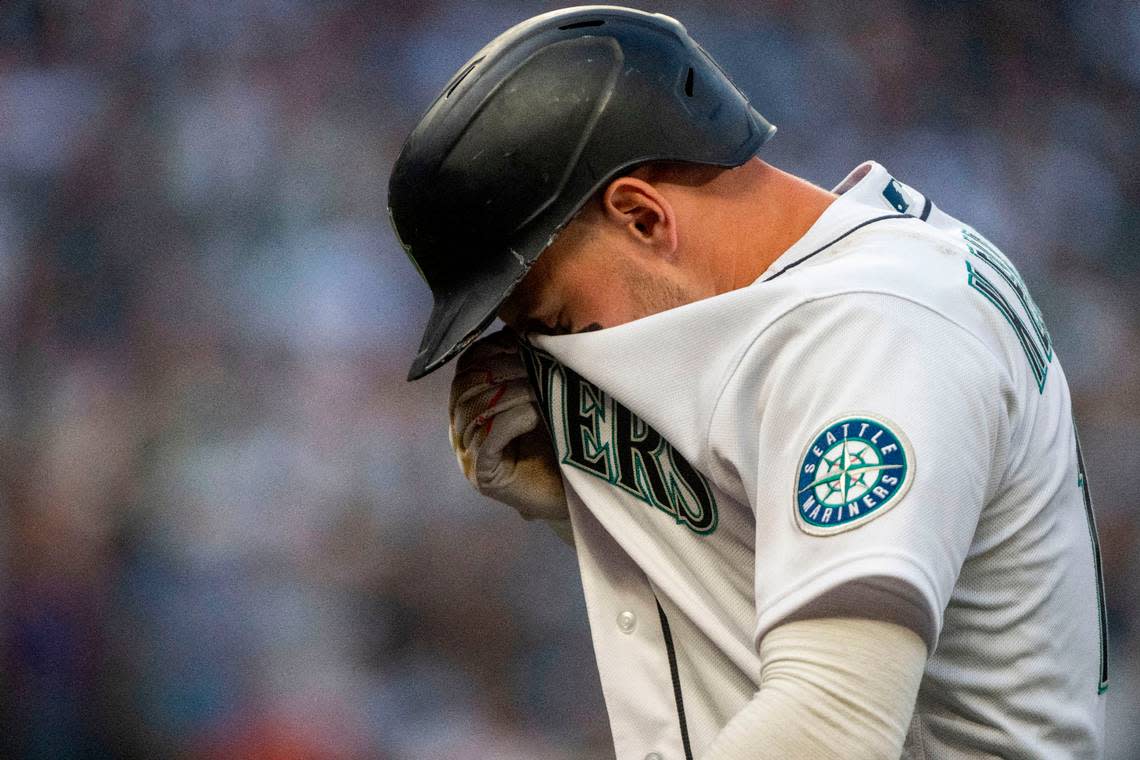The Mariners lost to Houston. That doesn’t mean players deserve social media attacks

The social media reaction to the Mariner’s loss to the Houston Astros shocked and saddened me. Our players deserve better than the unfriendly and sometimes venomous Twitter and Instagram statements of this past week.
During Thursday’s Mariners-Astros game, the TBS announcer shared good news for Yordan Alvarez that might have contributed to his robust performance since August: his parents had finally been able to move from Cuba to Houston. I recall when the father of former Sounder, Cuban-born Ozzie Alonso, was able to attend his first home Sounders game. It was exciting because the whole stadium welcomed him. I have similar memories of Seattle sports fans celebrating and supporting players, their families and their outside concerns on professional sports teams.
While Alvarez’s relief at having his family in the United States might have challenged the Mariners last week, there is just more to life than baseball. Players are three-dimensional. Alvarez’s success against the Mariners may be an example of the way that players’ lives affect their baseball performance. Despite professional players’ relative lack of privacy, I think it is important to remember that they, like Alvarez, have other reasons for individual droughts and peaks, of which fans have no knowledge.
The social media comments about the ninth inning of last Tuesday’s game against Houston really shook me. Well into Wednesday, Mariners’ followers (I cannot use the word “fans” right now) held a bloody, feeding frenzy on Twitter and Instagram. People trashed men who not only gave their best all season, but whose responsibilities extend far beyond baseball, particularly to their young families. I imagine these types of verbal assaults must directly or indirectly affect their wives and children in addition to the players themselves. While the first amendment protects Americans’ right to free speech, how can fans justify these personal attacks?
I hope that the Mariners’ players did not read Twitter earlier this week. Every player knows that he (in this case) is only one “less-than-ideal” game away from scathing social media judgment. (And I do not think good salaries make people immune to character assassinations.) If the desired outcome of the social media rants is winning, why would this additional anxiety help athletes play their best?
I know that Seattle teams have thousands of devoted fans who, if disappointed in the outcome of a game, would not resort to disparaging players.
Let us support the players on social media and when disappointed, imagine ourselves in their places and offer the support we all would hope for in similar circumstances.
Christine Navarro is a writer, editor and sports fan who lives in Tacoma. She and her husband have two adult daughters and one granddaughter.
